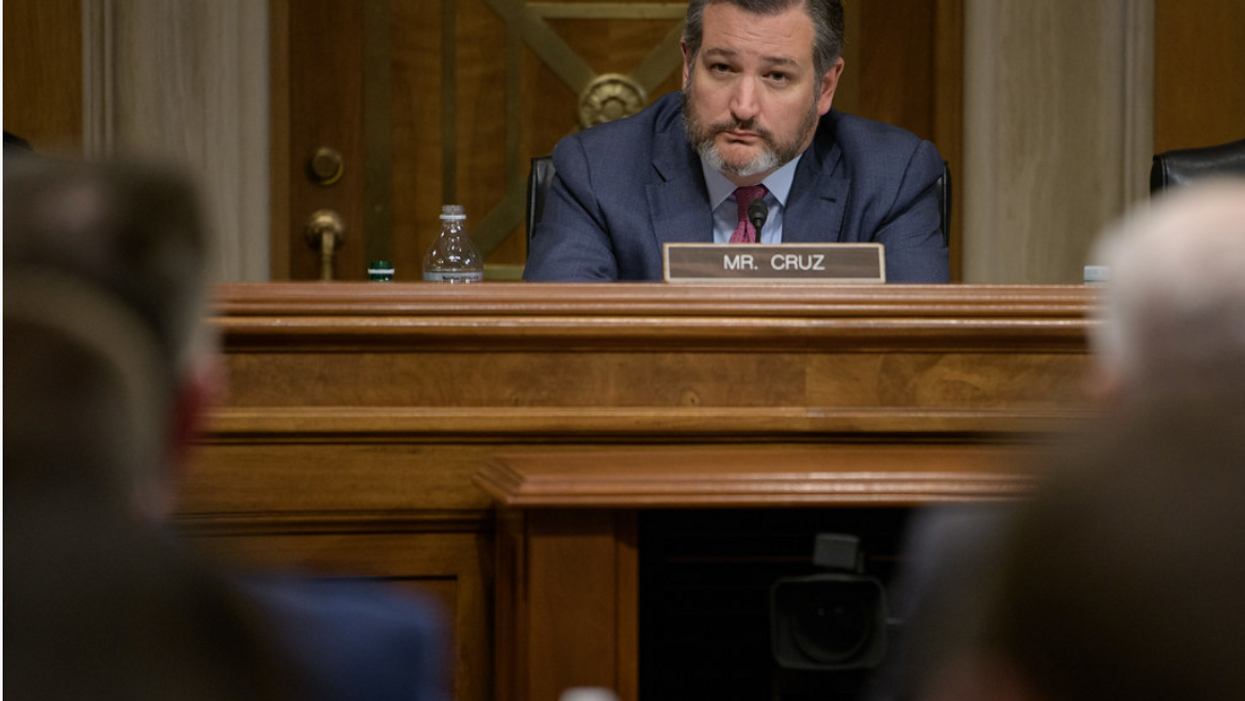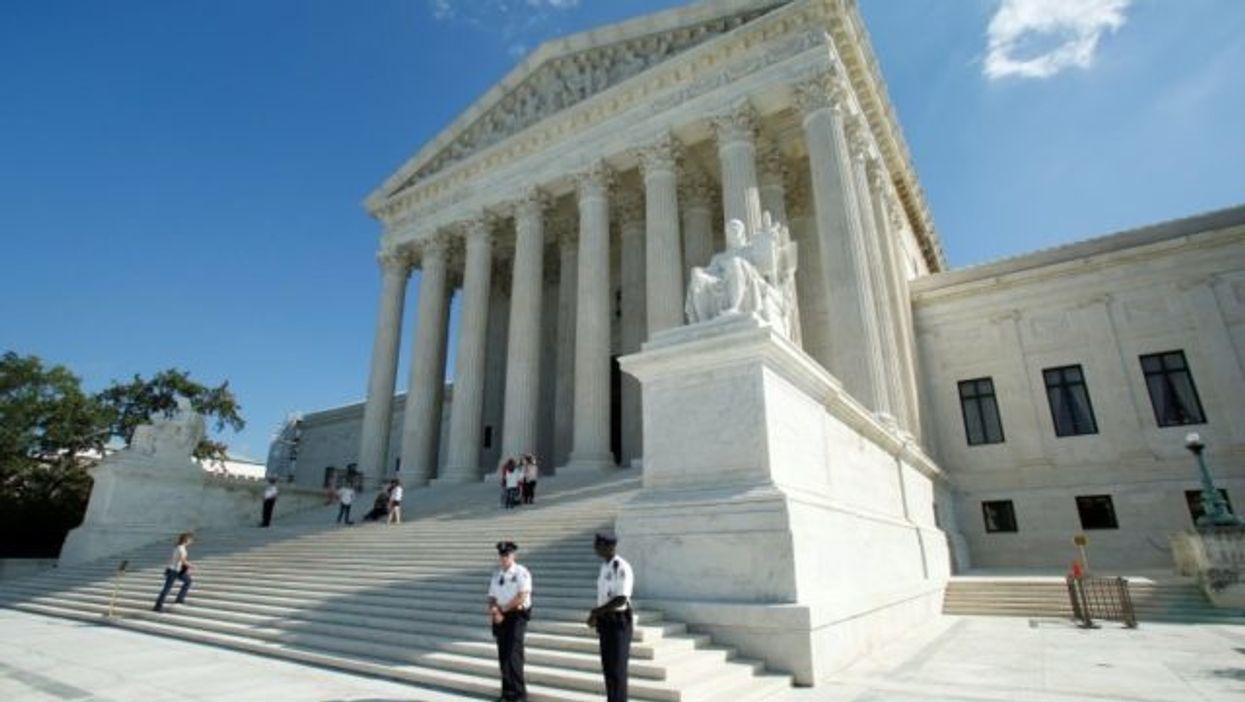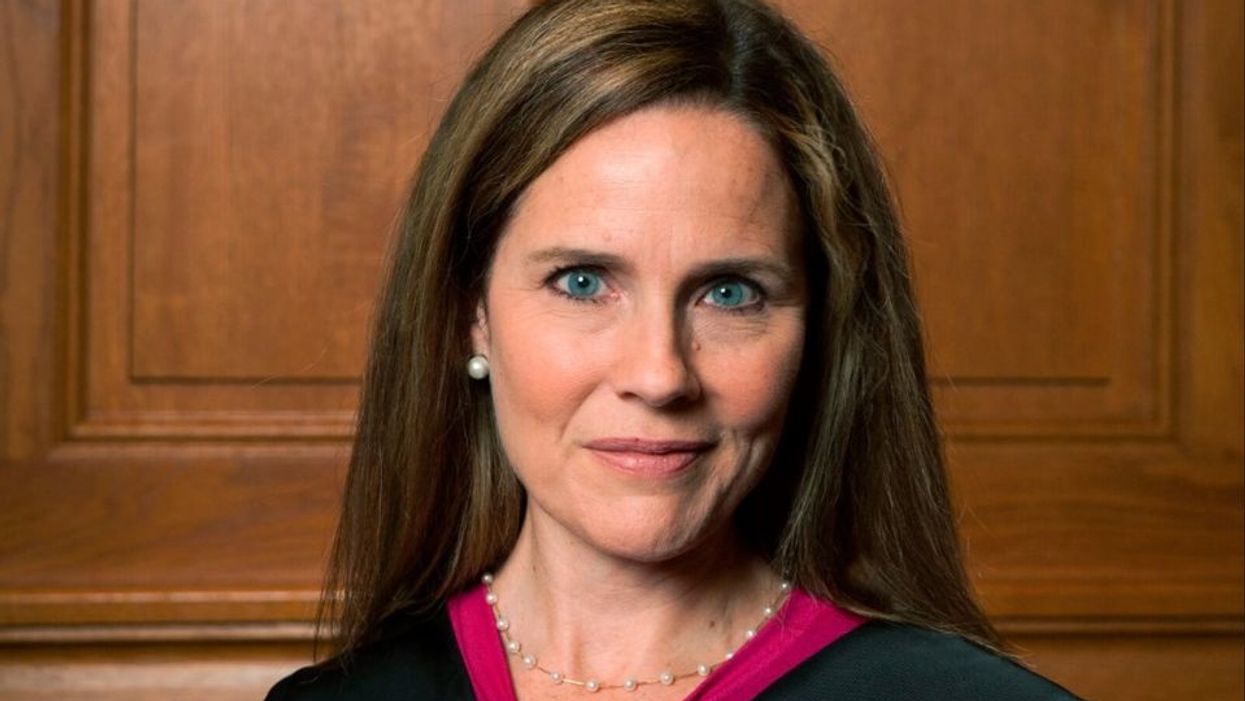Republicans Push Racist Lies About Biden’s Supreme Court Promise
Senate Republicans are attacking President Joe Biden over his plan to name a Black woman as his nominee to the Supreme Court, framing Biden's vow to do so as "racial discrimination" and charging that whoever he picks will be "quota" beneficiary.
During his 2020 presidential campaign, Biden promised that if elected he would nominate the first Black female justice in the Supreme Court's 233-year history. When Justice Stephen Breyer announced his impending retirement on Jan. 27, Biden reaffirmed that he would keep that promise.
Sen. Roger Wicker (R-MS) complained a day later that any Black woman Biden picks will have an inherent conflict of interest on the job.
"The irony is that the Supreme Court is at the very same time hearing cases about this sort of affirmative racial discrimination while adding someone who is the beneficiary of this sort of quota," he told a Mississippi radio network. The court announced Monday that it will hear a case about whether college admissions decisions can take race into account.
On an episode of his weekly podcast titled "Only Black Women Need Apply," Sen. Ted Cruz (R-TX) suggested on January 30 that Biden's move was the real racial discrimination.
"The fact that he's willing to make a promise at the outset that it must be a Black woman, I gotta say that's offensive. Black women are, what, six percent of the U.S. population? He's saying to 94 percent of Americans, 'I don't give a damn about you,'" Cruz charged.
"It's actually an insult to Black women," he added. "If he came and said 'I'm gonna put the best jurist on the court,' and he looked at a number of people and he ended up nominating a Black woman, he could credibly said 'Okay, I'm nominating the person who's most qualified.' He's not even pretending to say that."
In recent days, other Senate Republicans have also attacked Biden over his pledge.
Missouri Sen. Josh Hawley used racist dog-whistle language on Wednesday, warning Biden not to "continue to tear apart this country w/ a woke activist," a term he frequently uses to belittle people who oppose systemic racism.
On January 27 Hawley told CNN, "I think it sends the wrong signal to say that, 'Well if a person is of a certain ethnic background, that we don't care what their record is, we don't care what their substantive beliefs are.' That would be extraordinary."
The same day, Texas Sen. John Cornyn retweeted a message posted by a former nominations counsel to the Judiciary Committee under then-Chair Sen. Chuck Grassley (R-IA) charging that Biden and Senate Democrats "only pretend to care about diversity," based on the fact that they opposed the nomination to the U.S. Court of Appeals of right-wing California jurist Janice Rogers Brown, a Black woman, 17 years ago.
On Sunday, Maine Sen. Susan Collins told ABC News that Biden's campaign promise had "helped politicize the entire nomination process."
But there is precedent for the approach. In 1980, candidate Ronald Reagan promised to appoint the first female justice to "one of the first Supreme Court vacancies in my administration." A year later, President Reagan kept that promise with the nomination of Justice Sandra Day O'Connor.
In 2016, then-candidate Donald Trump released two lists of far-right people he'd consider for Supreme Court vacancies; all were white men. He also vowed that any nominees he picked would vote to overturn the Roe v. Wade abortion rights ruling. Collins made no charges of politicization when she voted to confirm one of them, Neil Gorsuch, in 2017.
In 2020, Trump announced that he would pick a woman to replace the late Justice Ruth Bader Ginsburg, though he did not yet know who. Republicans did not accuse him of politicizing the process.
Biden has not yet announced his pick. Breyer has said he plans to retire after the current term ends this summer, assuming his successor is confirmed by then.
Reprinted with permission from American Independent




